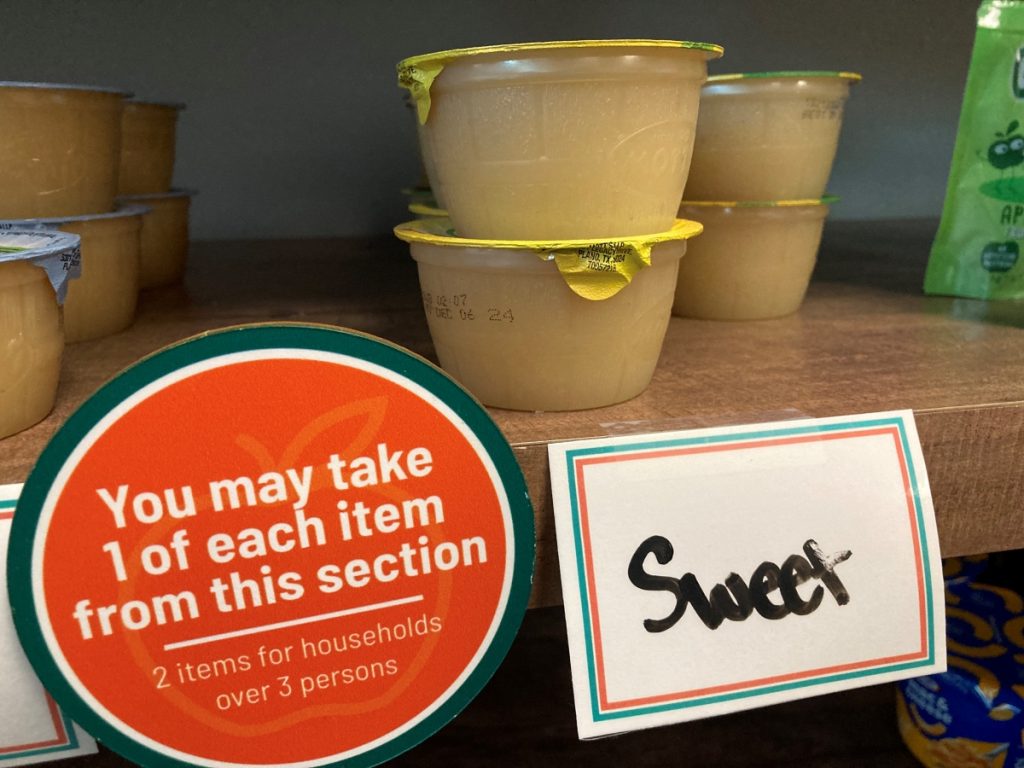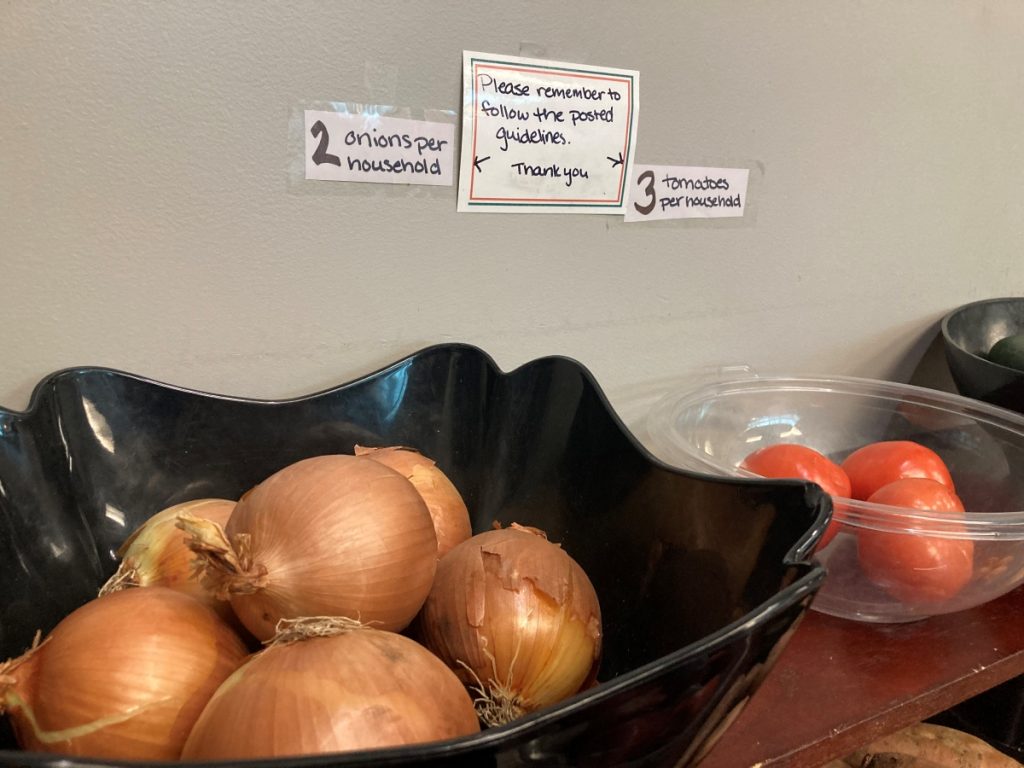News
Food insecurity is prevalent on campuses across the US, including Ohio University
By: Theo Peck-Suzuki | Report for America
Posted on:
ATHENS, Ohio (WOUB/Report for America) — Food insecurity remains a persistent issue among college and university students throughout the United States, and Ohio University is no exception.
A report from the Department of Education last year found that 23% of undergraduates nationwide experience food insecurity. Nevertheless, public awareness of the issue remains low.
“You may not hear a lot about students suffering for food insecurity because they don’t want to talk about it,” said Ohio University Basic Needs Coordinator Reggie Morrow.
Morrow oversees Ohio University’s student food pantry, Cat’s Cupboard. Located on the fifth floor of Baker University Center, the pantry stocks an assortment of foods, from canned soup to applesauce to fresh butternut squash.
From Aug. 14 through Dec. 22, 2023, the pantry logged 394 new households served. (August is when the pantry adopted a new platform for tracking this data.) Morrow suggested there may also be students facing food insecurity who aren’t aware of the pantry’s existence or who feel uncomfortable visiting due to stigma.

Morrow, who is new to the job, said one of his main goals is to reduce the barriers to entry for students. That means spreading the word and making sure students who use the pantry feel supported.
Food insecurity is not unique to Ohio University. According to Zoe Duffield of the nonprofit advocacy organization Swipe Out Hunger, the cost of meal plans is a common problem for students across the U.S.
“When we get students who aren’t fully supported by their families or parents … oftentimes they choose their education, their tuition, their textbooks, their materials, their housing over their meals,” Duffield said.
According to Duffield, students who face food insecurity are 40% less likely to graduate. She said Pell Grant recipients, first-generation students, student parents, LGBTQ students, students of color and international students are disproportionately affected.

“With international students, you can’t get FAFSA, you can’t get federal aid. A lot of grants aren’t geared for them. If they do get grants, chances are, they’re going to be taxed 10, 15% on that grant,” Morrow said.
Duffield noted that school breaks are also challenging for international students. Campuses shut down, but many international students stick around because going home for a few weeks isn’t feasible. If they get into trouble, there may not be any family within several thousand miles to fall back on.
Swipe Out Hunger is currently lobbying state legislatures across the country to take action on campus food insecurity. The group identifies 10 states that have already passed a version of its Hunger Free Campus bill. They include California, Illinois, Louisiana, Maryland, Massachusetts, Minnesota, New Jersey, Oklahoma, Pennsylvania and Washington.
Not all lobbying efforts have been successful. A Hunger Free Campus bill in Florida, for example, died in committee in 2022. No Hunger Free Campus bill has yet been introduced in Ohio’s General Assembly.
In the meantime, Morrow is encouraging students who need support to visit his office.
“If food is an expense that’s becoming harder to cover, then we can help with that,” he said.

